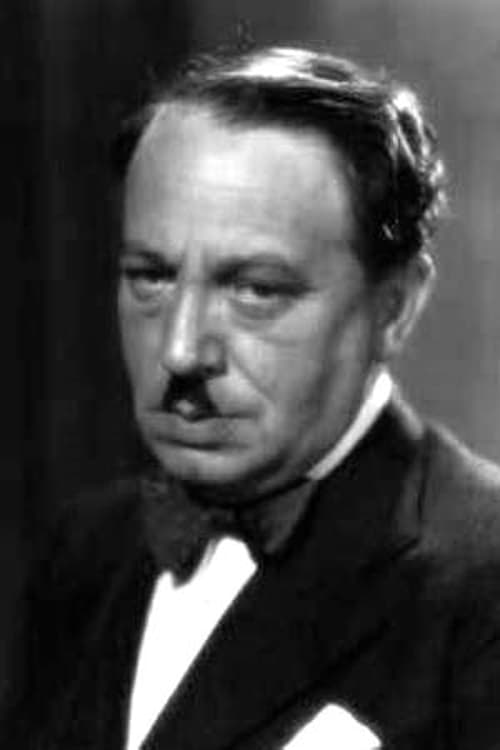
Gyula Gózon
출생 : 1885-04-19, Érsekújvár, Austria-Hungary (now Slovakia)
사망 : 1972-10-08
약력
Gyula Gózon (19 April 1885, Nové Zámky – 8 October 1972, Budapest) was a Hungarian actor and comedian.
Gyula Gózon was born on 19 April 1885, in Nové Zámky, but grew up in Esztergom. With the mentoring of his brother, he could fulfill his dream of learning to be a singer actor at the actor school of Szidi Rákosi in Budapest. After graduating, he joins a group touring the southern part of the country, often working under harsh conditions, changing location and repertory often. During this period he has the chance to polish his prosaic capabilities, one that was omitted in Rákosi's school. After playing in Târgu Mureş and Miercurea Ciuc, he gains the attention of Miklós Erdélyi, the director of Oradea's theater, who offers him contract in 1904. He plays here for six years, and befriends Gyula Kabos, forming a lifelong comradeship, and comedic duo. In 1912 Endre Nagy offers him to join his newly forming Cabaret (Apolló theatre) in Budapest, followed by years working in the Népopera and Király Theatre. Gózon accepted his first movie role in 1914 (the silent film A becsapott újságíró), appearing nearly a hundred during his lifetime. In 1917 he marries Lili Berky, with whom he starts the Muskátli Cabaret, often appearing on stage together. After the venture failed in 1920, he joins the Belvárosi Theatre in 1927, followed by the Új Theatre two years later.
With Gyula Kabos he gets a role in Kék Bálvány, Hungary's first major motion picture, and like his mate, Gózon quickly becomes a much used actor of the emerging movie industry, appearing in the first hits of Budapest's theatres, like Hyppolit a lakáj or Meseautó. In 1935, along with his wife, he is contracted to the National Theatre). On the account of Jew-laws, he is banned from work in 1941, followed by years of hiding in his Rákosliget home during World War II. In 1945 Gózon re-joins the National Theatre, enjoying a second flowering of his career for a decade. After his wife's death in 1958, the health of the now 73-year-old actor began to fail, and seven years after his last appearance in the National Theatre, he died on 8 October 1972.
Gyula Gózon is one of the few entertainers who could be successful and active all along the years of the Monarchy, the Horthy regime, and the Communist rule. Throughout his long career, he appeared in over 90 movies (including silent ones), and was both a pioneer and master of the Hungarian Cabaret. He received the Kossuth Prize in 1954. His former home in Rákosliget is now home to the Gózon Gyula Repertory Theater, opened in 2005.
Description above from the Wikipedia article Gyula Gózon, licensed under CC-BY-SA, full list of contributors on Wikipedia.

Pincér
Based on a novel by Dezso Kosztolani, this Hungarian drama is set at the turn of the 20th century. A young, homely woman lives at home with her mother and retired father. Because of all the care the girl provides for her parents, the couple becomes detached from the world outside their home. When the girl leaves for a short visit to her uncle's home, the parents realize the extent of their separation from society and their selfish feelings toward their own daughter.

Uncle Szoboszlai
The story recalling the spirit of Gilgamesh, the Sumerian king quarrelling with his approaching death, takes place in a cancer hospital in Budapest. Dávid, the young ethnography scientist resigned to his lot and is indifferent to his approaching death. His specialist reckons, however, that such a searching and stubborn mind with thorough knowledge of the nature of his own illness, will be able to fight death.
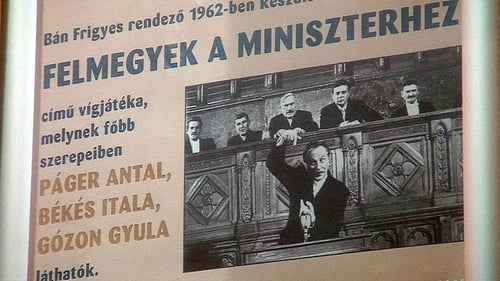
Zsüle
A comedy about the organisation of agricultural co-operatives. In the village of "Rendes", everybody has already entered the co-op, only the stubborn farmer, Bódog Balogh continues to resist. The leadership plays all their tricks and uses all their efforts, but all in vain.

Mihály Zágon has been struggling with his conservative mother-in-law for a long time. Now, that his wife is pregnant, the old woman wants Piroska to stay in bed. Mihály is elected to be the president of the co-operative, but nobody is happy about this back home. His wife often pretends to be ill to keep him by her side.

The grey hero of grey workdays, the divorced cashier of a cinema who is always willing to sacrifice herself for others, Etelka, is awarded a two-week-holiday at Lake Balaton. Following the advice of her female friend, she tries to live life at full speed.

1920 in a mining town in the country-side. The team of children led by Ferkó Boda fish guns and a flag of Red soldiers out of the local lake.

Actor

Eberlein

October, 1956. Colonel lieutenant Szabó sends a platoon with the mission of calming the people demonstrating in the town. The platoon is lined up under the command of Lieutenant Csendes and the soldiers aim at the demonstrators. Szusza Kis changes sides, and Csendes is unable to shoot at his childhood mate. They withdraw.

Federik, bartender
In Gerolstein, those girls who were born the same year as the princess, cannot marry until she remains maiden. An attractive and very rich husband is needed for Antónia in order to fill the treasures up. The wonderful reigning princess meets her selected bridegroom, the emperor of the neighbouring Pecunia in disguise and by accident.

Miniszterelnök
Cabinet crisis threatens in Futbólia, due to a series of lost matches. The head of state charges admiral Duca with the task, as a last chance, to get hold of the football star of the Hungarian team presently playing in Switzerland.

Guba
Imre, secretary of the illegal communist party arrives in Budapest secretly in 1942, in order to start the newspaper of the party in the fight against war. Not even his own mother can see him.

Nagyapa
A few days from a daily life of a regular school in Hungary during fifties.
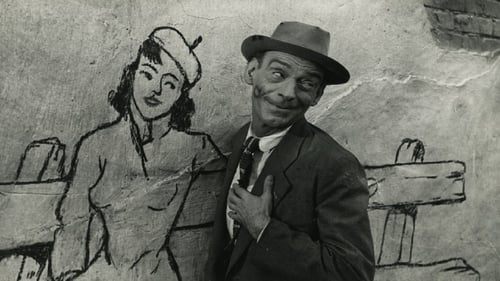
Lustyák bácsi
On the Spring of 1945 the Jackson circus is heading towards the border with the clown Peti and Aida, the elephant. They have to play for the Hungarian Fascists, while Peti is hiding the Jew Annuska and Sanyika.

Uncle Lajos
Venice Film Festival 1954

The hero of the story taking place at the end of the twenties is the modest civil servant, doctor Kopjáss who is suddenly appointed to be the chief attorney of Zsarátnok city. He realises slowly that his immaculate name was needed as a cover for the corrupt loan transactions handled by the lords of the city.

Dani nagypapa
In the vocational school the professionally excellent Dani János works on his own invention in his leisure time, but he does not like learning. However, even his own father learns in the evenings, he will become a teacher.
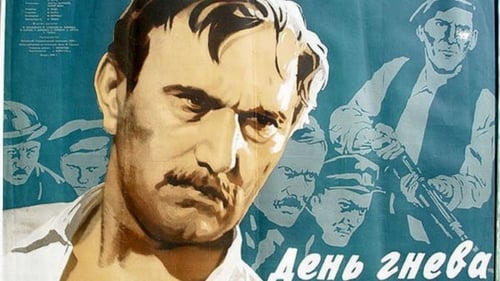
Gombkötõmester
In May 1919 in a small rural town beside Salgótarján the local high society wants to get the power back with the leadership of dr. Máriáss, exploiting the outside attack launched against the Republic of Councils.

Bezzegh bácsi
Kocsis Ferenc excellent staff appointed the new director of public stores. Ilonka a talented fashion designer, Boriska a dear, Daniel, a overzealous, Klimke, a conservative sale and Glauziusz uncle, conscientious, honest book promotes the work. Ilonka initially rather just keep arguing, even though both of their lives off the job. The selfishness will love soon. Dancs Meanwhile, the old manager spreads the rumor that the new socialist trade can not meet the demand. Relatives and friends start buying into action, leading to mass hysteria. However, the new store is borne by the customer siege until the arrival of the supply.

Lajos bácsi
Pista Rácz, bearer of the title "outstanding workman" is opposed to all forms of sport, and is especially antagonized by Jóska Teleki, a first-class sportsman, who seems to be a drawback for Rácz's brigade in terms of work quantity performance figures.

Jakab Viszket

Bernáth
Különös házasság is a 1951 Hungarian drama film directed by Márton Keleti. It was entered into the 1951 Cannes Film Festival.
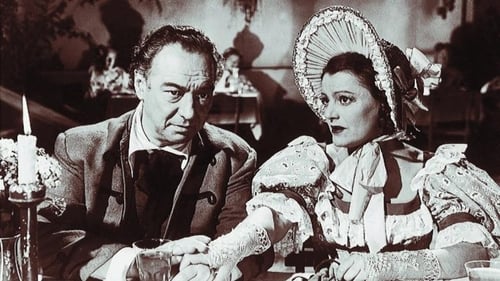
Neunherz
The story, which takes place in the reform era, centres around Mrs. Déry, a legendary actress, who, along with her fellow actors and actresses, travels around the country to become the herald of the Hungarian language, performing in villages and towns up and down the land as strolling players, a woman who is not put off by the prospect of starvation and the dearth of a home to return to and security to live in.
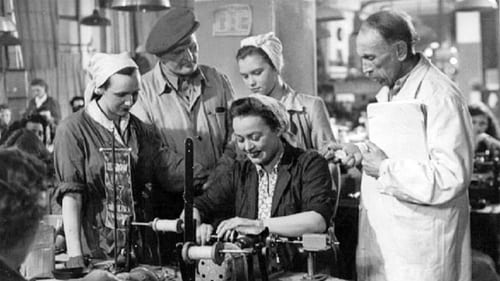
Birman

Énekkari tag
"Silver lute", the choral society of the Vác Engine Works, led by Réz, the conductor, is preparing for its 25th anniversary. All the important members of the society, among them Seregély, a magician, are, at the same time, all "fathers" of Zsóka, daughter of a former colleague, who has been killed in an accident, and whom they then adopted.

Edus bácsi

Bernáth bácsi

In the story, the golden watch is a metaphor: life of an individual for whom honesty is of real value. Uncle Bogdán is the one to have the golden watch, which is all the "fortune" he has, apart from Juci, his only daughter, who supports him

Hajógyári igazgató

Meller
After having spent 22 months in prison, Viktor Pálos returns to his homeland, where he is going to be involved in the robbery committed by his relatives.

Ignác Semmelweis is 18 and is in Vienna, training to become a judge-advocate, to comply with the wishes of his family. He is, however, attracted by the medical science, and joins the team of Professor Rokitanszky.

Tormássy, vezér

Kiss Márton fuvarozó, Piri apja
The landowner, János Karády, is knocked down and robbed on the highway. He comes to in the shabby clothes of one of the robbers. Thirteen pretty young girls take care of the young man thought to be a poor vagabond.

Illés bácsi

Bubenyik
Another winner from Hungarian director Ivan Szekely (aka S.K. Seeley and Steve Sekely), A Nosty fiu Esete Toth Marival was released in English-speaking regions as I Married for Love. Feri Noszty (Paul Javor) is a handsome but irresponsible Hussar officer who prefers a life of wine, women and song to his military responsibilities. Unwilling to bow to family pressure, Feri refuses to marry heiress Mary Toth (Eva Szorenyi) for her dowry alone. But Mary falls in love with the prideful Feri, and to win his affections she poses as her own poverty-stricken maid. Based on a novel by Kalman Mikszath, A Noszty Fiu Esete Toth Marival was filmed simultaneously in Hungarian- and German-language versions.

Gerleszegi lakája
Venice Film Festival 1938

Uncle Béla
Janka, a girl coming from an impoverished noble family plays the role of a fun-loving, shallow rich girl to get jobs for her parents in a countryside mansion.

Kalauz
Gitta is 20 years old, a girl with modern attitudes, who is courted by Ferenc Fekete. Not particularly liked by Gitta's parents, especially her old-fashioned father, Fekete dates Gitta in secret.

Müller úr

Doctor
The title character in Maria Nover (Sister Maria) is played by Eva Szorenyi. A convent-bred lass on the verge of taking her final vows, Maria falls in love with a handsome artist, portrayed by popular operatic baritone Sandor Sved. Due to a silly misunderstanding, she walks out on Sved and marries his best friend Paul Javor. The frustrated suitor quits the art world to become a world-famous concert singer. Years later, he returns to reclaim Maria, only to find that she's not only still a wife, but also a mother and a dedicated nurse. Gracefully bowing out of her life, the Pagliacci-like Sved continues his singing career to assuage his broken heart.

Vörösvári

Frici,az artista
The child's must have a mother! - This is the doctor's instructions, and a young widow will do everything so that little girl's mood will change.

Lajos bácsi

Panni apja
An unemployed singer hits a girl with a car he has just stolen. She has no serious injuries but falls in love with the handsome stanger.

Rizling

Kovács papa
A light hearted comedy, from the thirties. One of the most successful ones in Hungary. The ever enchanting story of a beautiful girl falling in love with a rich man.

Mr. Polgár is a provincial paper dealer. His sons, Viktor and Feri, are managers in a big factory in the capital, spending their money lavishly, living their lives in a careless, irresponsible way. Viktor is to marry a baroness and feels rather too uneasy about his father's small business. He persuades his old man into selling the business he had so long cherished and to move to their place in Pest.

Esztáry Sándor
The story takes place in a small village manor-house off Vásárosladány. Sándor leads a quiet life with his wife, son and the now poor relatives of his wife, one which is characterized by the monotony of rural boredom. The arrival of another poor relative, Kitty, a young girl brought up in America, whose way of thinking reflects modern times, puts an end to this overwhelming monotony.

Weber

Bogár úr

Éva apja

Café Guest
It tells the story of Marie, an austerely beautiful young peasant girl played by the French star, Annabella. She is seduced beneath a flowering tree by the admirer of one of the daughters of the prosperous family for whom she works, becomes pregnant and is cast out.

Jegyző
The director discusses film subjects with three screen-play writers. The three episodes are formed from readers' letters.

Makáts
Evergreen comedy about a typical parvenu, an ignorant transportation entrepreneur who has suddenly found himself very rich. Despite their humble origins, his wife strives to live a sophisticated lifestyle. When she engages a butler, Hyppolit, their whole life is turned upside down. It has remained one of the most viewed Hungarian comedies of all time: it is shown regularly and is still extremely popular

Baron Lóránt, now bankrupt for reasons for which he cannot be blamed, starts a new life in America, accompanied by Péter, his faithful valet. They both work as waiters in a bar. Things turn nasty when Lóránt recognises his uncle in one of the bar's customers. Embarrassed by his present job, he refuses to serve his uncle and is, therefore, promptly given the sack.

Lopov kao detektiv is a Serbian film.


















